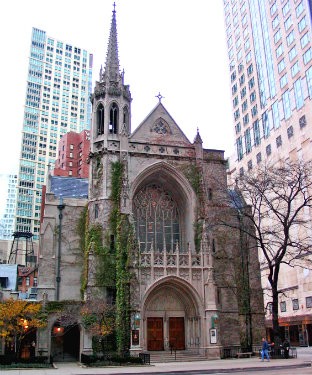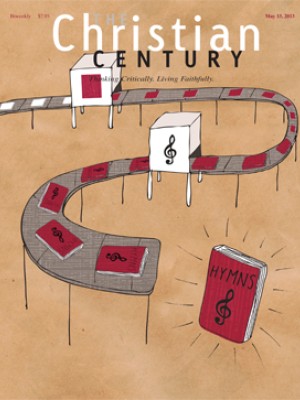Family hospitality

Years ago, when Chicago Sinai Congregation was located eight or nine miles south of the Loop, the rabbi called one day to ask if his congregation could hold Friday evening services in our church’s chapel. Many of his members were living in our downtown neighborhood, he explained, and didn’t like making the Friday evening rush-hour trek to the South Side. The church session discussed the request at length, approved it and issued an invitation.
The Friday evening services were popular, and after several months another request came: Could the worshipers remain after the service for a time of fellowship and refreshments? That request sounded so Presbyterian that the session agreed immediately.
Read our latest issue or browse back issues.
Then came a major request. The rabbi called and explained that Congregation Sinai planned to sell its building and move to our neighborhood. Real estate prices were so steep, however, that the congregation could not possibly afford a large enough temple to accommodate the crowds that attended High Holy Day observances. Would it be possible to hold Yom Kippur and Rosh Hashanah services in our sanctuary? Our answer: we’d be honored.
Now, for several days each autumn, our sanctuary is full to overflowing with Jewish worshipers. Rabbi Michael Sternfield, who became a good friend, told me that, much like some Presbyterians, some people stake out a favorite pew and are perturbed if someone else sits in it.
The relationship has deepened over time to include some joint programming. Rabbi Sternfield and I presented a Bible study on the book of Ruth. (A Jewish participant asked why Christians call themselves monotheists and yet believe in the Trinity.) Congregation Sinai members began volunteering in Presbyterian mission programs with children and the homeless. And on September 11, 2001, we held an interfaith neighborhood service of prayer.
When relations between American Presbyterians and Jews became strained because of the divestment issue, Rabbi Sternfield and I talked through the situation and were able to help our people understand why the issue of justice for the Palestinian people is important for mainline Protestants, and why the existence and security of Israel is critical for American Jews.
When I retired last year, I received an invitation to preach at the synagogue and to attend a recognition luncheon afterward. I told the Jewish congregation that Christians need to pay more attention to the fact that Jesus was an observant Jew and that many Christians are aware that the one we know as Christ never repudiated the religion of his people and that when he died he was on his way to celebrate Passover. Jews must understand what justice and a secure, viable state for the Palestinian people mean to Christians. We all need to acknowledge that mutual understanding happens only when we talk with one another.
My thinking has been influenced by Rabbi Irving Greenberg, an orthodox Jew, professor at Yeshiva University, and chair of the Jewish studies program at City College of the City University of New York. In his collection of essays, For the Sake of Heaven and Earth: The New Encounter between Judaism and Christianity, Greenberg articulates an expansive concept of God and God’s purposes. “Covenants of redemption” are for God’s purpose of tikkun olam, healing and repairing the world. He discusses Jewish-Christian relations: “It was always God’s plan to bring the vision of redemption and the covenantal way to more of humanity. . . . The group that would bring the message of redemption to the rest of the nations had to grow out of the family and covenanted community of Israel. But the [new] community was not intended to be a replacement for Abraham’s family.”
That sounds a lot like what St. Paul says in Romans. Jesus himself said that he had not come to repudiate the religion of his people but to fulfill it. “The new articulation of the faith grew in the soil of Judaism,” Greenberg writes. “Christianity had to start within Judaism, but it had to grow into its own autonomous existence to preserve the particularity of the original covenantal ways.”
Greenberg helps me understand that at Chicago Sinai I was attending a wonderful family reunion, a visit to my faith’s home of origin.






